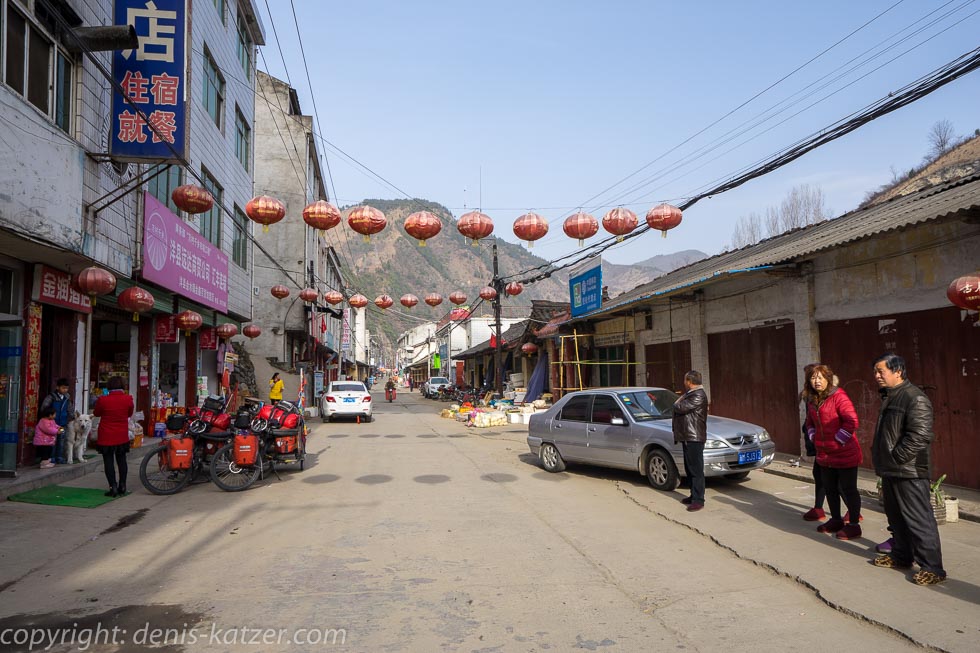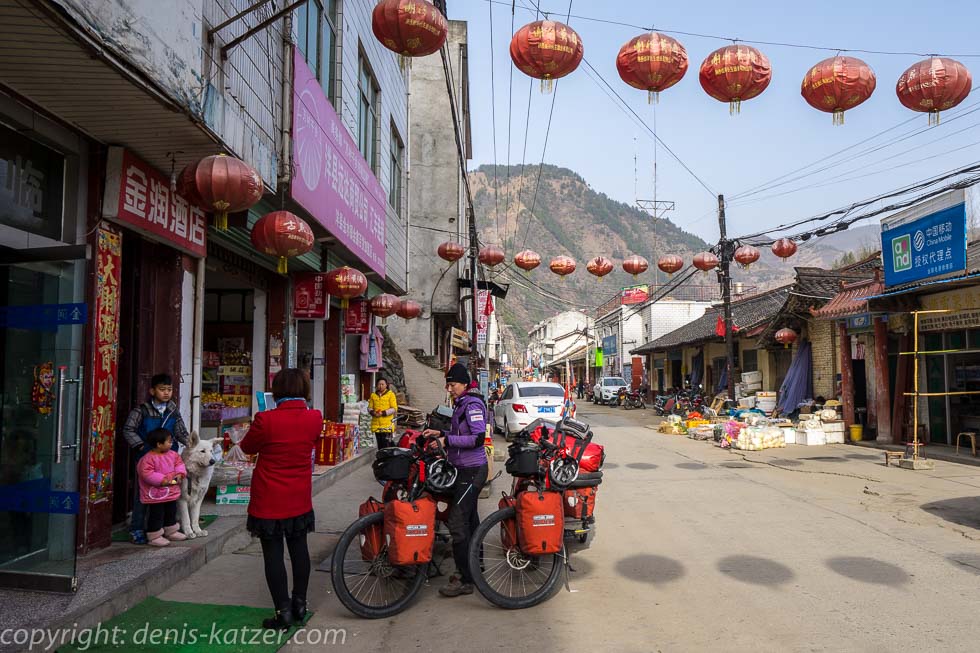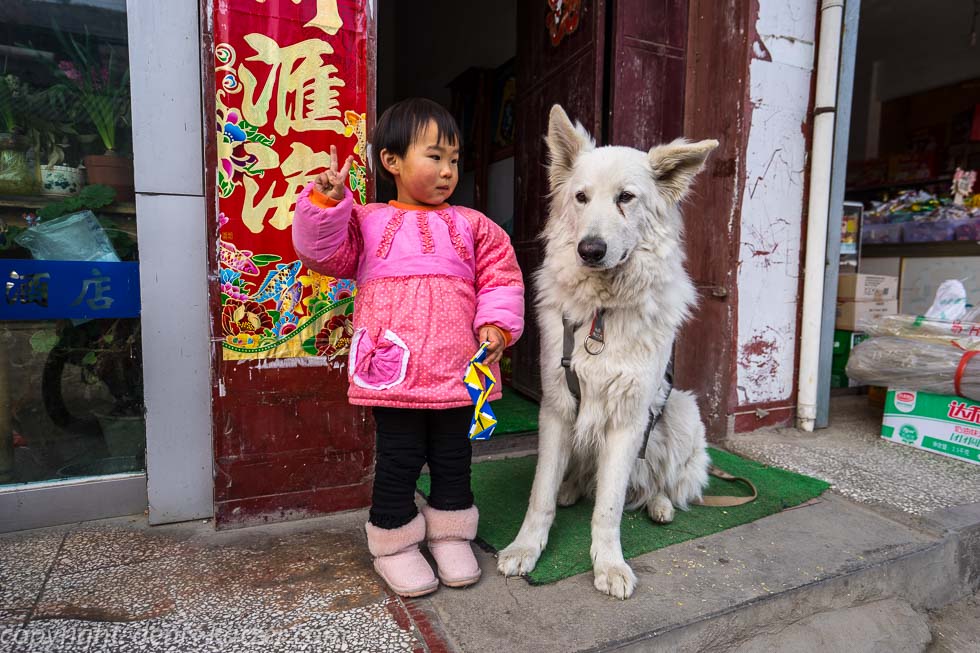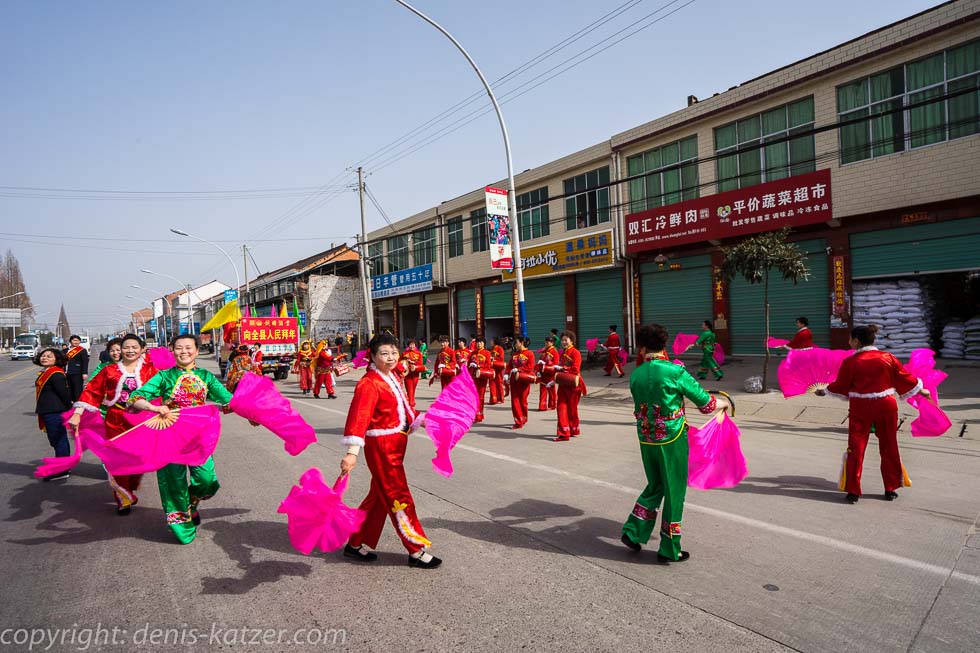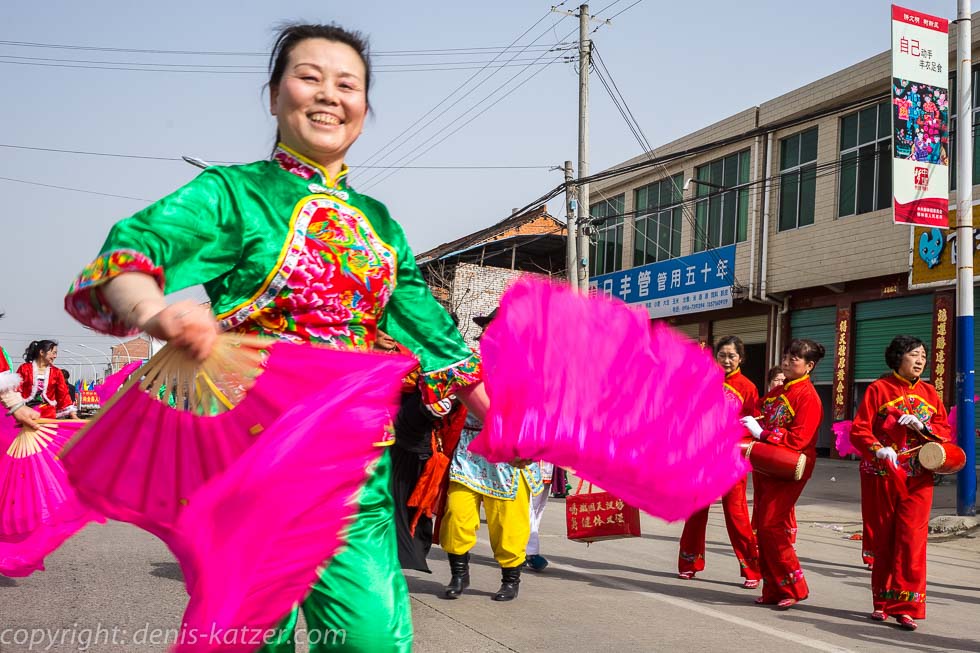
It’s getting tight
N 33°04'42.7'' E 107°02'59.3''
Date:
19.02.2016 until 21.02.2016
Day: 235 -237
Country:
China
Province:
Shaanxi
Location:
Hanzhong
Latitude N:
33°04’42.7”
Longitude E:
107°02’59.3”
Daily kilometers:
106 km
Total kilometers:
12,290 km
As the crow flies:
43.01 km
Average speed:
21.5 km/h
Maximum speed:
53.1 km/h
Travel time:
4:54 hrs.
Soil condition:
Asphalt
Maximum height:
1.100 m
Total altitude meters:
20.922 m
Altitude meters for the day:
1.000 m
Sunrise:
07:32 am – 07:30 am
Sunset:
6:38 pm – 6:40 pm
Temperature day max:
13°C
Temperature day min:
minus 4°C
Departure:
09:15 a.m.
Arrival time:
16:00
(Photos of the diary entry can be found at the end of the text).
As I had already suspected last night, I feel ill this morning. Nevertheless, we must and want to continue. “I won’t stay in that freezing cold stink shed a moment longer,” I say. Before we lug our equipment down, we fortify ourselves with muesli and soy milk porridge.
Shortly after 9:00 a.m. the trestles are loaded and we leave the strange village under the highway behind us. After another 15 kilometers of ups and downs, we reach a plain without any elevations. Traffic has been hectic and dangerous again since the city of Xi’an, six weeks ago. Buses, trucks, cars and mopeds race past us. That’s the end of the wonderful peace and quiet that we really enjoyed. But we don’t have to ride up or down any more mountains today. It’s almost always straight ahead and you could be forgiven for thinking we were cycling through an endless city. House after house, store after store, neighborhood after neighborhood and factory after factory line up without interruption. It is extremely busy. There is honking, shouting, working. Traffic lights switch from green to red and are often ignored. Pedestrians walk back and forth. Mopeds, bicycles and rickshaws come towards us in our lane. They are obviously too lazy to cross to the other side of the road. Everyone seems to accept this, even if it leads to unavoidable clashes time and again. In road traffic, it is normal to simply disobey laws and so far we have never seen rule-breakers being punished by the permanent police presence. It looks as if traffic lights and road signs are only there for show, at least that’s how it looks to us.
Suddenly, loud music booms out of large loudspeakers and mixes with the noise of the street. Women in colorful costumes dance on the side of the road. Although I find it difficult, I pull the brakes, put the bike on the stand, unpack the camera, walk across the road and take a few photos. I feel bad. My nose is running all the time and every few minutes I’m plagued by downright sneezing fits. Riding a bike in such conditions is no fun and can even damage your heart. Many a cyclist who has not allowed himself to rest during an acute cold has contracted myocarditis. A nasty thing that can change your life forever. To take it easy on me, we take a short break every 10 km. Then it goes on.
After 86 kilometers we reach Hanzhong, a city of almost four million inhabitants, which was already the center of the Han state during the Han Dynasty (206 BC to 220 AD). At that time, it played an important strategic role because it guarded a pass to the neighboring province of Sichuan. We are lucky not to have to cross the traffic jam today because our hotel is not far from the eastern city limits, right next to the bus station. As most of the station and bus station hotels we have come across on our travels have often been unclean, we are sure that we will have to spend the night in a run-down shed again. The staff help us to load the equipment into the elevator and take it to the 11th floor. A hotel employee opens the door and asks us to come in. “Wow!”, I exclaim in amazement. “This is a little palace,” I enthuse as I enter the large, bright, pleasant-smelling and spotlessly clean room. The room costs just 130 yuan (€17.95), which is only 4 euros more than the terrible freezing bunker we escaped from just this morning. After a hot shower, I immediately lie down in the fragrant bed to cure my cold. As we can’t think about driving on tomorrow, we think about how we are going to make it to the Vietnamese border in time. We still have 550 km to go to Chengdu. We have to be there in 8 days at the latest to organize the 1,500-kilometre train journey to Vietnam. “Do I hope there are still any train tickets at all?” I ponder, but can hardly think straight because of my severe headache. “Maybe I should leave here for Vietnam and come back with our new visa. By the time I get back, your cold will be cured and you can extend your visa from Chengdu. That way we wouldn’t have lost the time of your cold,” Tanja has a flash of inspiration, but we immediately discard it because we are not allowed to enter the country a day earlier than the date entered on the visa due to the fixed entry date of the Vietnam visa. This means that when our new Chinese visa expires in three months, our Vietnam visa must already be valid. “I hope I feel better tomorrow,” I say meekly and fall into a deep, restful sleep.
Indeed, the miracle happens and my cold is blown away the next day. For reasons of common sense, however, we stay another day. “It’s better you don’t have a relapse. Then maybe we’ll manage 100 kilometers every day and reach Chengdu in time,” Tanja suggests…
If you would like to find out more about our adventures, you can find our books under this link.
The live coverage is supported by the companies Gesat GmbH: www.gesat.com and roda computer GmbH http://roda-computer.com/ The satellite telephone Explorer 300 from Gesat and the rugged notebook Pegasus RP9 from Roda are the pillars of the transmission.
